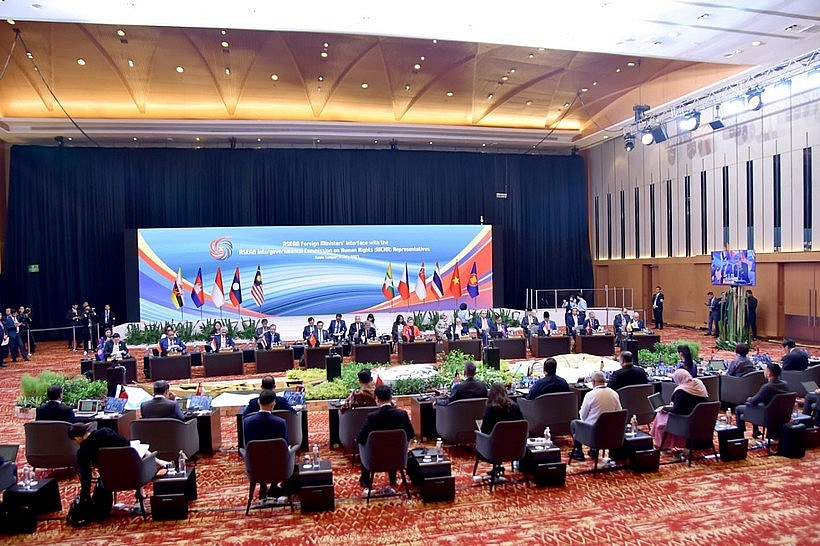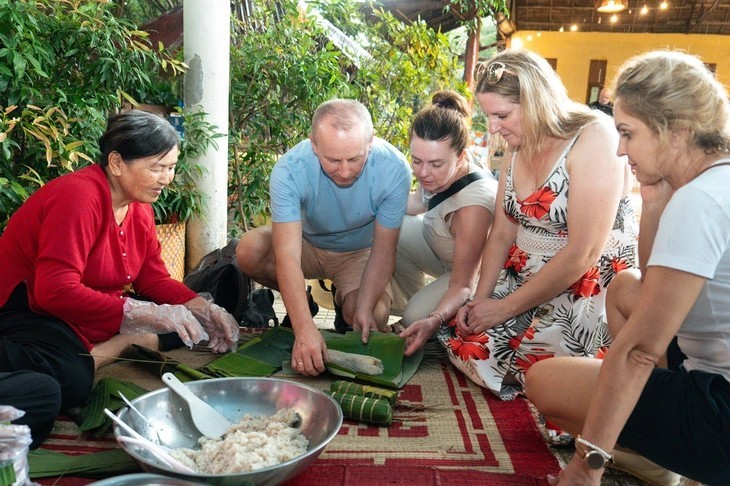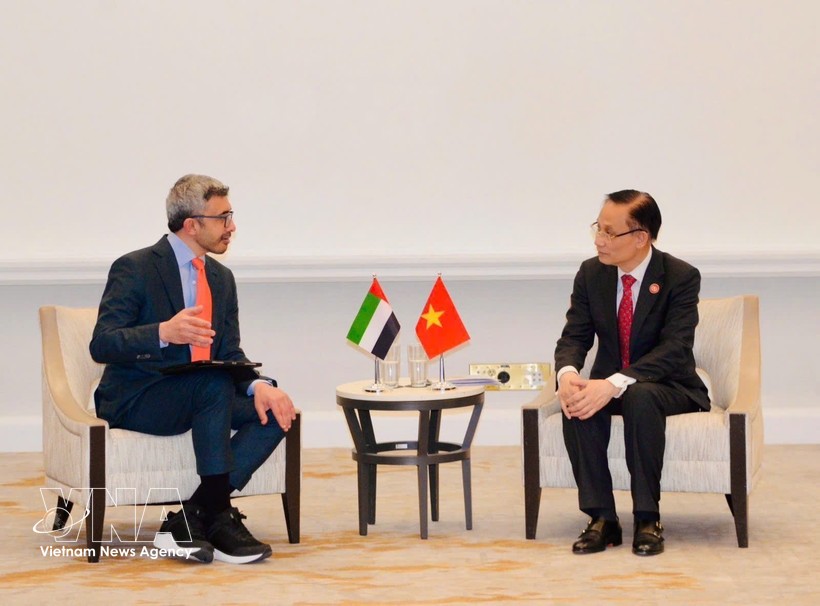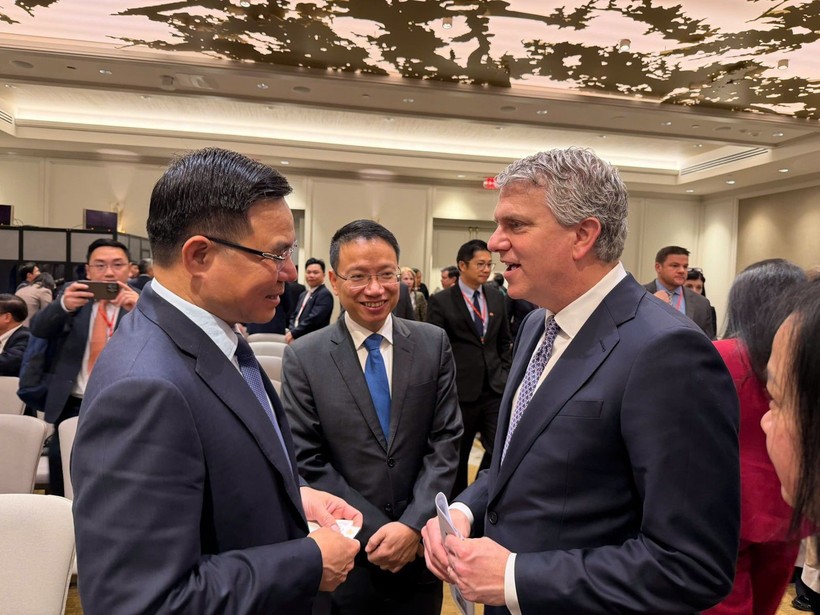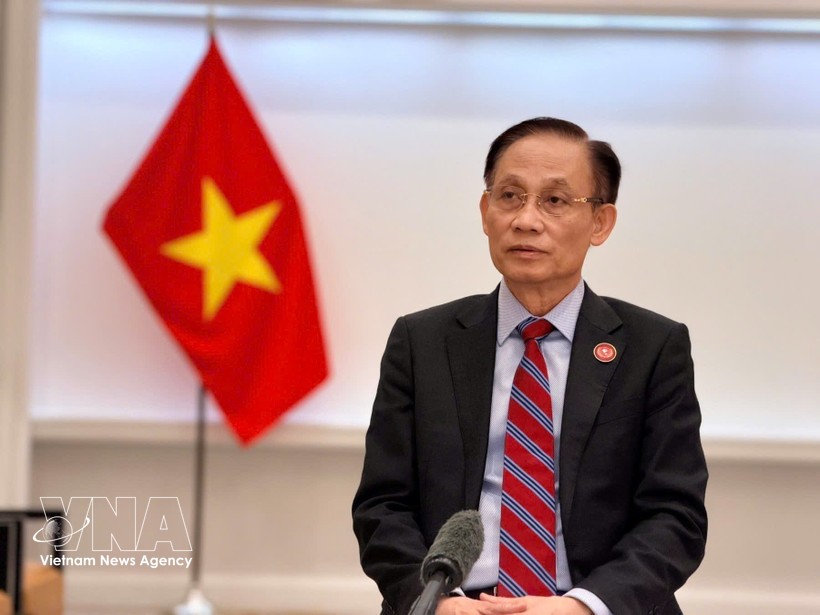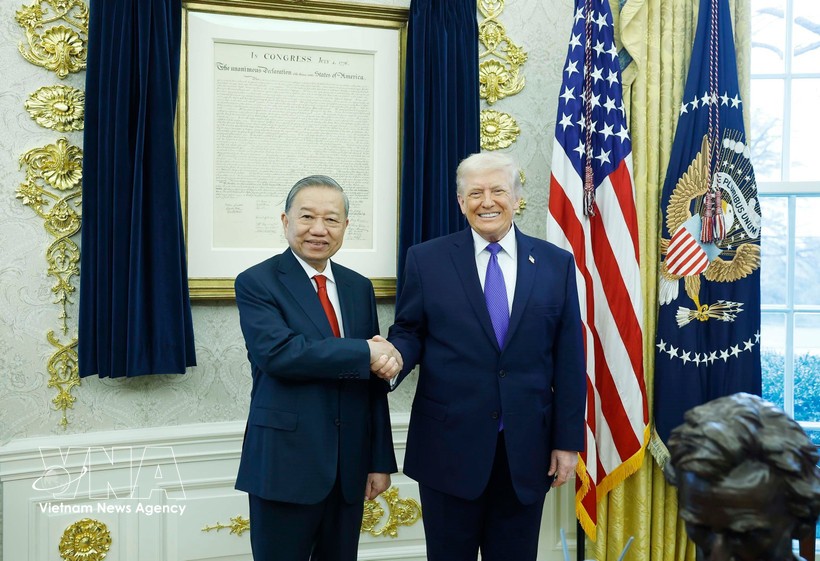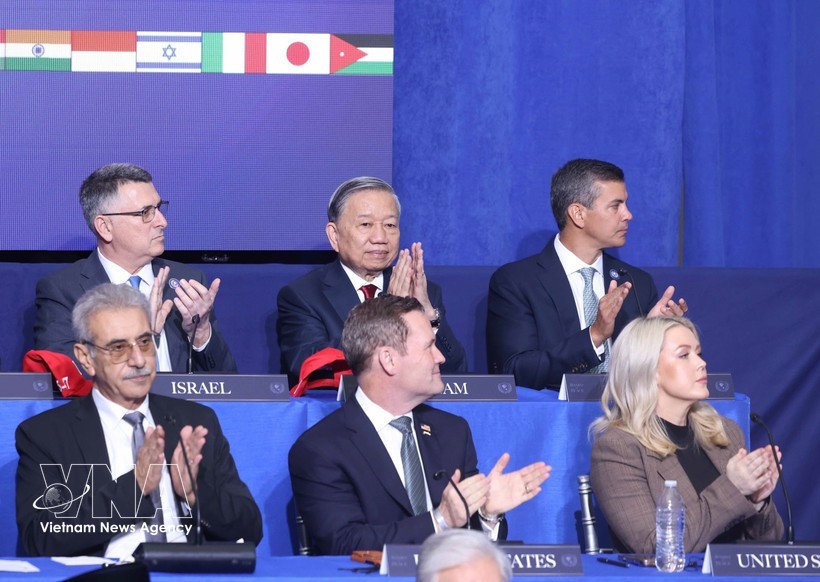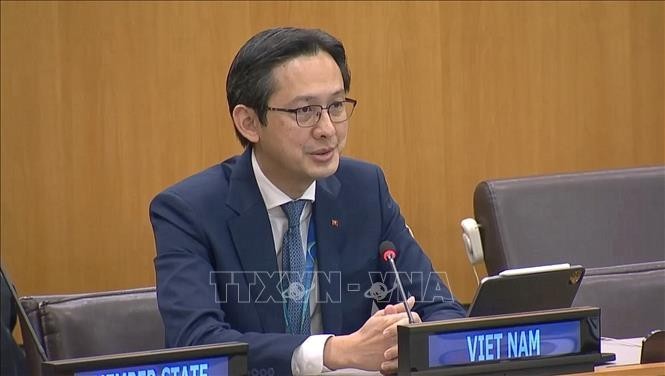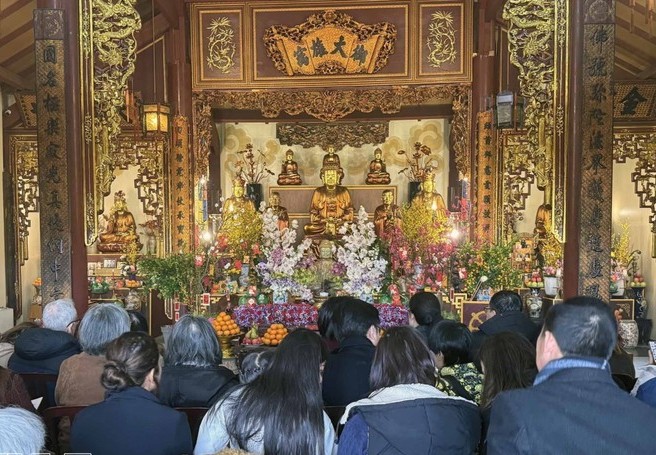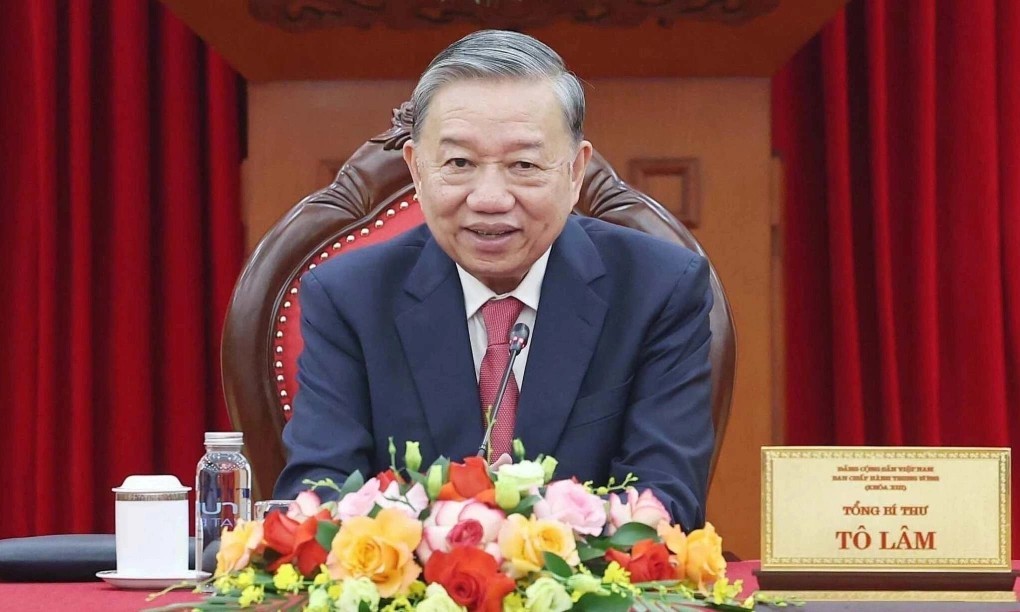UOB raises Vietnam’s GDP growth forecast to 6.9% for 2025
The Singapore-based United Overseas Bank (UOB) revised its forecast projection for Vietnam’s GDP growth upward to 6.9% for 2025 from its previous projection of 6%, following the strong performance in the second quarter.
According to a report released by UOB's Global Economics & Market Research Unit released on July 8, Vietnam’s real GDP grew by a robust 7.96% year-on-year in the second quarter of 2025, significantly exceeding Bloomberg’s forecast of 6.85%, UOB’s projection of 6.1%, and the revised growth figure of 7.05% in the first quarter.
In the first half of 2025, Vietnam’s GDP grew by 7.52% year-on-year, the strongest performance in H1 since data became available in 2011.
This robust growth was largely driven by businesses accelerating export orders during the 90-day window in which the US temporarily suspended reciprocal tariffs, opting instead for a basic 10% tariff rate, VNA reported.
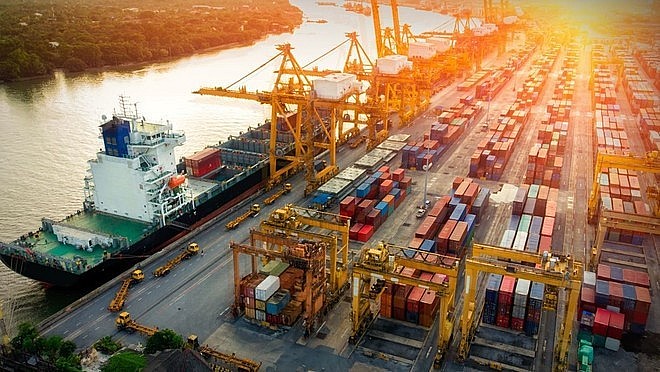 |
| UOB raises Vietnam’s GDP growth forecast to 6.9% for 2025 - Illustrative image (Photo: VNA) |
In H1, Vietnam’s export turnover rose by 14.4% compared to the same period last year, hitting 219 billion USD, while imports increased by 17.9% to 212 billion USD. These figures are nearly equivalent to the full-year growth rate recorded in 2024.
However, Vietnam's Purchasing Managers' Index (PMI) indicates that the manufacturing sector has yet to return to a solid growth trajectory. Over the past seven months, the PMI fell below the 50-point threshold six times, signaling ongoing challenges facing the sector, particularly due to a decline in new orders.
According to S&P Global, Vietnam’s export orders in June dropped at the sharpest pace since September 2021, matching the decline recorded in May 2023.
With recent positive developments in trade negotiations with the US, UOB experts predicted that the worst may be over for Vietnam, but tariffs remain a significant barrier for the country.
In light of the newly adjusted US tariffs on Vietnamese goods, UOB has revised its forecast for Vietnam’s exports to the US, now expecting a modest 5% increase, a significant improvement from the previously projected 20% decline.
For markets outside the US, UOB expects exports to grow by 10%, close to the 11.3% increase recorded in 2024. Vietnam’s exports are projected to rise by 8.5% in 2025, a noticeable slowdown compared to the 14% growth seen the previous year.
Based on these assumptions, and after factoring in the impacts on manufacturing and FDI inflows, UOB's Global Economics & Market Research Unit estimated that Vietnam’s GDP growth in 2025 will be 0.9 percentage points higher than its initial baseline forecast, reaching 6.9% compared to the previous projection of 6.0%.
Regarding monetary policy, UOB said that the positive economic growth performance may have eased the pressure to further loosen policy. As a result, the bank expects the State Bank of Vietnam to maintain its current policy rates, with the refinancing rate held steady at 4.5%.
Mexican media underscores Vietnam’s rising global profile
Vietnam’s rising role on the international stage was reaffirmed by Prime Minister Pham Minh Chinh’s visit to Brazil on July 6-7 to attend the expanded BRICS Summit in Rio de Janeiro, where Vietnam participated as a partner country.
This was the assessment of Regeneración, the official publication of Mexico’s ruling National Regeneration Movement (Morena), in an article titled “Vietnam keeps moving forward,” which praised the country’s remarkable development in recent years.
In the article, author Pedro Gellert wrote that Vietnam is not only remembered by the international community for its resounding victories in national liberation and unification, but is also widely respected today for its impressive achievements in socio-economic development
After nearly four decades of pursuing the Doi Moi (Renewal) process since 1986, Vietnam has made major strides. In 2024, its GDP grew by 7.09%, placing it among the fastest-growing economies in the world. The country maintained macroeconomic stability, kept inflation below 4%, preserved key economic balances, and posted a trade surplus. By 2029, the Asian nation is projected to rank among the world’s 20 largest economies.
The article also emphasized that economic development only holds true meaning when it serves prosperity and social equity. Under its socialist orientation, Vietnam has made sustained efforts to improve people’s livelihoods, achieving remarkable progress in this area. Per capita income has reached US$4,711 per year, while the multidimensional poverty rate has dropped to just 1.93%, down from 60% in 1986.
According to the 2024 World Happiness Report, Vietnam ranked 54th out of 143 countries, an 11-place improvement from the previous year.
In education, the adult literacy rate stands at nearly 99%. Since 2014, lower secondary education has been made universal, and the number of students enrolled in universities and colleges has increased nearly twentyfold compared to the early years of Doi Moi. In healthcare, nationwide health insurance coverage reached 94.1% in 2024, according to VOV.
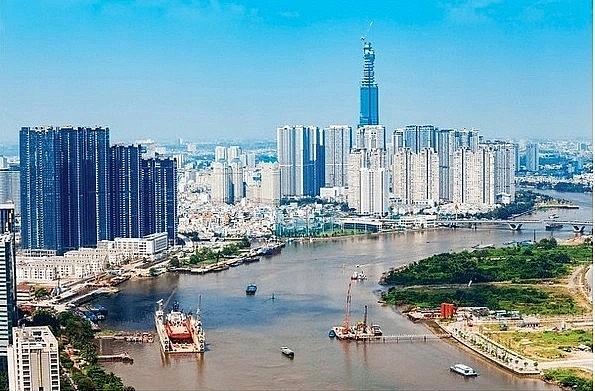 |
| The article published by Regeneración, the official media outlet of Mexico’s ruling National Regeneration Movement (Photo: Screenshot) |
The article further noted that Vietnam has prioritized the development of science, technology, and innovation, while promoting a startup ecosystem, improving human resource quality, and advancing inclusive policies on ethnicity, religion, gender, children, and the elderly. National programs for child protection and care, gender equality, and women’s empowerment have also been key pillars of national policies.
It praised Vietnam’s ongoing efforts to improve living conditions for its 53 ethnic minority groups, particularly those in mountainous and remote areas. These include targeted support for cultural preservation, mother tongue education, infrastructure investment, concessional loans, vocational training, and free health insurance.
The article highlighted that the Voice of Vietnam (VOV) even operates a radio channel in 13 minority languages – an illustration of the country’s commitment to preserving cultural diversity within a unified nation.
Thanks to these achievements, Vietnam currently ranks 54th out of 166 countries in the Sustainable Development Goals (SDG) Index, demonstrating balanced progress across economic, social, and environmental dimensions.
In the author’s view, the world is experiencing intense and uncertain geopolitical polarization, while developing nations are facing both new opportunities and growing challenges. Vietnam, however, continues to assert its path of independent and proactive development and promote deep international integration.
To succeed in this new era of development, General Secretary of the Communist Party of Vietnam To Lam has outlined four key strategic pillars for national advancement. While each pillar focuses on a distinct area, they are closely interconnected, reinforcing and complementing one another.
According to the article, Vietnam aims to surpass the global average in technological capability and innovation by 2030. In certain areas, the country is targeting international standards, with a particular goal of ranking among the top three in ASEAN and top five in Asia for technological capacity and digital transformation.
Moreover, Vietnam is accelerating legislative reforms to improve its institutional system across key sectors; identifying the private sector as a primary engine of the national economy; and pursuing a proactive, comprehensive, and multilateral integration policy. While deepening its global economic integration, Vietnam is also developing an independent, modern, green, and circular economy with competitiveness driven by science, technology, and innovation.
In addition to domestic policies, Mexican media especially hailed Vietnam’s foreign policy, underscoring its comprehensive, open, and inclusive approach to international integration. Vietnam’s commitment to multilateralism and cooperation is seen as a contribution to building a peaceful, progressive, and better world.
The author added that PM Pham Minh Chinh’s participation in the 2025 BRICS Summit not only underscores Vietnam’s growing prominence and emerging role on the global stage, but also provides an opportunity for the Asian nation to strengthen bilateral relations with BRICS member states and seek cooperation opportunities across a wide range of areas.
With its tremendous achievements, Vietnam is indeed moving forward with confidence and determination toward the future, the article concluded.
Foreign arrivals up 21% in first half
Vietnam welcomed 10.7 million foreign arrivals in the first half of this year, reported the National Statistics Office.
The figure marks a year-on-year increase of 21 percent and a rise of nearly 26 percent compared to the pre-Covid level.
During the first six months, China was the biggest tourist source market with 2.7 million, accounting for 25.6 percent of the total foreign arrivals to Vietnam.
It was followed by South Korea with 2.2 million tourists, Taiwan (630,000), the U.S. (449,000); Japan (393,000) and Cambodia (360,000), VGP reported.
 |
| Photo: VGP |
According to the May edition of the World Tourism Barometer published by the United Nations Tourism Organization (UN Tourism), in the first quarter of 2025, Vietnam led the Asia-Pacific region in the growth of international tourist arrivals, with a 30 percent increase compared to the same period in 2024, and ranked second in terms of recovery in international arrivals, with a 34 percent rise compared to the first quarter of 2019.
Globally, in the first three months of 2025, Vietnam ranked sixth in terms of international tourist arrival growth (up 30 percent compared to the same period in 2024) and placed fourth in total tourism revenue growth, with a year-on-year increase of 29 percent.
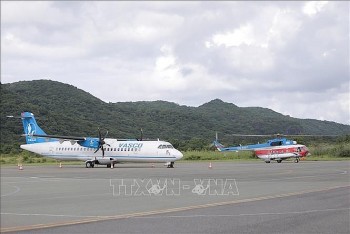 | Vietnam News Today (Jul. 4): Vietnamese PM to Attend BRICS Summit in Brazil Vietnam News Today (Jul. 4): Vietnamese PM to attend BRICS Summit in Brazil; Vietnam’s GDP growth poised to beat forecast by 0.3%; Vietnam - US ... |
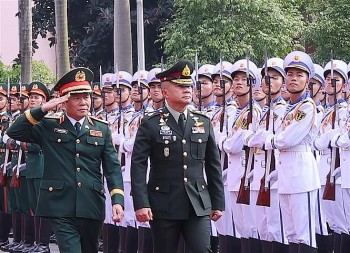 | Vietnam News Today (Jul. 5): Vietnam, Thailand Pledge to Deepen Military Ties Vietnam News Today (Jul. 5): Vietnam, Thailand pledge to deepen military ties; Southern megacity posts 7.5% economic growth in first half; Vietnam leads UNHRC discussion ... |

